Filter by

Remembering African Labor Migration to the Second World
This open access book is about Mozambicans and Angolans who migrated in state-sponsored schemes to East Germany in the late 1970s and throughout the 1980s. They went to work and to be trained as a vanguard labor force for the intended African industrial revolutions. While they were there, they contributed their labor power to the East German economy. This book draws on more than 260 life hi…
- Edition
- 1
- ISBN/ISSN
- 978-3-031-06776-1
- Collation
- -
- Series Title
- Palgrave Macmillan Transnational History Series
- Call Number
- XXVII, 377

Remembering African Labor Migration to the Second World
This open access book is about Mozambicans and Angolans who migrated in state-sponsored schemes to East Germany in the late 1970s and throughout the 1980s. They went to work and to be trained as a vanguard labor force for the intended African industrial revolutions. While they were there, they contributed their labor power to the East German economy.
- Edition
- 1
- ISBN/ISSN
- 978-3-031-06776-1
- Collation
- -
- Series Title
- Palgrave Macmillan Transnational History Series
- Call Number
- XXVII, 377

Remembering African Labor Migration to the Second World
This open access book is about Mozambicans and Angolans who migrated in state-sponsored schemes to East Germany in the late 1970s and throughout the 1980s. They went to work and to be trained as a vanguard labor force for the intended African industrial revolutions. While they were there, they contributed their labor power to the East German economy.
- Edition
- 1
- ISBN/ISSN
- 978-3-031-06776-1
- Collation
- -
- Series Title
- Palgrave Macmillan Transnational History Series
- Call Number
- XXVII, 377

Innovation in Bayern
- Edition
- 1
- ISBN/ISSN
- 978-3-658-39561-2
- Collation
- -
- Series Title
- 4 b/w illustrations, 8 illustrations in colour
- Call Number
- 978-3-658-39561-2
- Edition
- 1
- ISBN/ISSN
- 978-3-658-39561-2
- Collation
- -
- Series Title
- 4 b/w illustrations, 8 illustrations in colour
- Call Number
- 978-3-658-39561-2
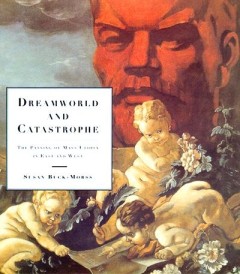
Dreamworld and Catastrophe: The Passing of Mass Utopia in East and West
"This book offers a reevaluation of the twentieth century. It argues that the disintegration of Soviet socialism marked the abandonment of the idea of mass utopia by both sides in the Cold War. One of the casualties of the end of that war was the shattering of dreamworlds of industrialization, mass culture, and historical progress that gave meaning to collective social life in East and West. Dr…
- Edition
- -
- ISBN/ISSN
- 9780262269506
- Collation
- 1 online resource (xvi, 368 pages) :illustrations (some color)
- Series Title
- -
- Call Number
- -
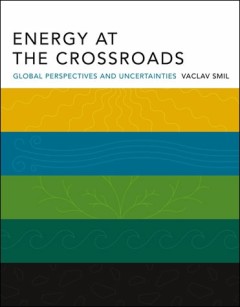
Energy at the Crossroads: Global Perspectives and Uncertainties
In Energy at the Crossroads, Vaclav Smil considers the twenty-first century's crucial question: how to reconcile the modern world's unceasing demand for energy with the absolute necessity to preserve the integrity of the biosphere. With this book he offers a comprehensive, accessible guide to today's complex energy issues -- how to think clearly and logically about what is possible and what is …
- Edition
- -
- ISBN/ISSN
- 9780262283847
- Collation
- 1 online resource (xiv, 427 pages) :illustrations, maps
- Series Title
- -
- Call Number
- -
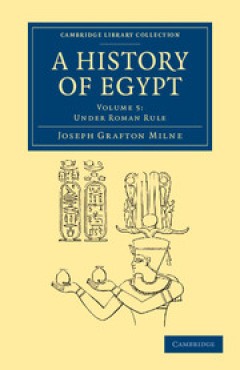
A History of Egypt
Published in six volumes between 1894 and 1905, this collection served as a valuable reference work for students and scholars of Egyptology at a time when ongoing archaeological excavations were adding significantly to the understanding of one of the world's oldest civilisations. At the forefront of this research was Sir William Matthew Flinders Petrie (1853–1942), whose pioneering methods ma…
- Edition
- -
- ISBN/ISSN
- 9781107325180
- Collation
- -
- Series Title
- Cambridge Library Collection - Archaeology
- Call Number
- -
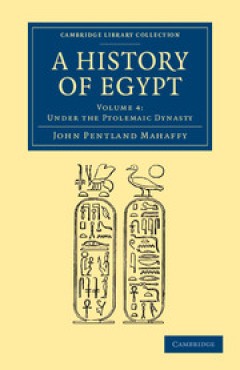
A History of Egypt
Published in six volumes between 1894 and 1905, this collection served as a valuable reference work for students and scholars of Egyptology at a time when ongoing archaeological excavations were adding significantly to the understanding of one of the world's oldest civilisations. At the forefront of this research was Sir William Matthew Flinders Petrie (1853–1942), whose pioneering methods ma…
- Edition
- -
- ISBN/ISSN
- 9781107325173
- Collation
- -
- Series Title
- Cambridge Library Collection - Archaeology
- Call Number
- -
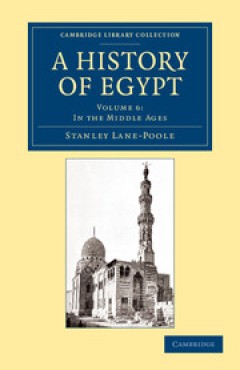
A History of Egypt
Published in six volumes between 1894 and 1905, this collection served as a valuable reference work for students and scholars of Egyptology at a time when ongoing archaeological excavations were adding significantly to the understanding of one of the world's oldest civilisations. At the forefront of this research was Sir William Matthew Flinders Petrie (1853–1942), whose pioneering methods ma…
- Edition
- -
- ISBN/ISSN
- 9781107325197
- Collation
- -
- Series Title
- Cambridge Library Collection - Archaeology
- Call Number
- -
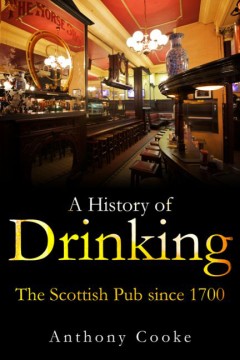
A History of Drinking The Scottish Pub since 1700
A social history of Scottish drinking and drinking establishmentsPoets and writers from Robert Burns and Walter Scott to Ian Rankin and Irvine Welsh have left vivid descriptions of the pleasures and pains of Scottish drinking places. Pubs also provided public spaces for occupational groups to meet, for commercial transactions, for literary and cultural activities and for everyday life and work …
- Edition
- -
- ISBN/ISSN
- 9781474400138
- Collation
- -
- Series Title
- -
- Call Number
- -
 Computer Science, Information & General Works
Computer Science, Information & General Works  Philosophy & Psychology
Philosophy & Psychology  Religion
Religion  Social Sciences
Social Sciences  Language
Language  Pure Science
Pure Science  Applied Sciences
Applied Sciences  Art & Recreation
Art & Recreation  Literature
Literature  History & Geography
History & Geography